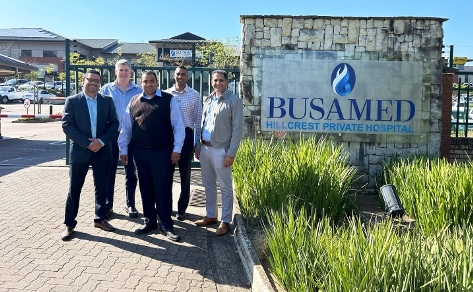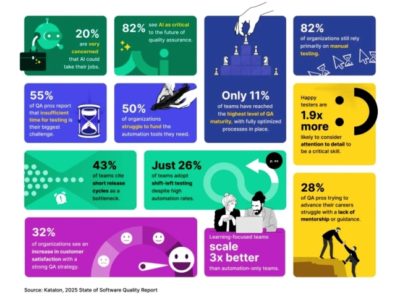Private South African hospital group Busamed has successfully consolidated seven on-premise data centres into one central, hosted private cloud environment, with the organisation seeing power consumption savings that have covered around 80 percent of the project costs, as well as a number of other benefits.
RELATED: Datacentrix announces acquisition by Convergence Partners
The cloud migration was completed in partnership with Datacentrix, a leading hybrid ICT systems integrator and managed services provider.
According to Servesan Moodley, Group IT Manager at Busamed, the organisation was founded in 2015, with a strong focus on quality patient care. Established initially in the Western Cape, Busamed completed four greenfield projects, as well as purchasing another three existing hospitals, to become the 1,110 bed healthcare group that it is today, with seven hospital facilities across the Western Cape, KwaZulu-Natal, Gauteng, Mpumalanga and the Free State.
Busamed’s previous data centre setup was a challenging one, states Moodley. “Due to our acquisitions, the organisation had not only attained new businesses, but had inherited the technologies used at those sites too. These were not simple ‘rip and replace’ environments, so Busamed had to phase in migration opportunities over a period of four to five years, ultimately leaving the business with multiple minor data centres.
“Add to this capex complexities, as each hospital operates as its own entity, and we were left with a siloed infrastructure that was inefficient, particularly from a running cost and licensing perspective, with tasks that were duplicated across the seven sites, and a complicated cybersecurity setup.”
Overcoming power, loadshedding and other woes
Loadshedding, something that has a negative impact on all South African businesses, was becoming increasingly difficult to manage, says Moodley, as were technology upgrades, with difficulties maintaining consistency across all seven sites. “Our existing technology was also reaching end of life, with risks increasing as time passed, and spares availability becoming difficult. From a disaster recovery perspective, server failovers had also become challenging, as there were only so many machines that could be brought online at the same time.
“Thus the decision was taken to start engagement in good time with Busamed’s EXCO to forewarn them of potential risks.
“As a healthcare organisation that prides itself on patient care, with an essential part of this being 24×7 availability of our business systems, it became clear that Busamed needed to upgrade its data centre environment to ensure that our patients are always able to be admitted.”
Busamed undertook some independent broad-based studies on cloud technology, considering both private and public clouds. “The most important factor for us was to find a partner that would offer Busamed an approach that could help support the business into the future,” Moodley clarifies. “We approached a number of potential service providers within the technology space, but ultimately opted to partner with Datacentrix for the project. This was due to the amount of time that the Datacentrix team put into ensuring that the solution put forward would meet Busamed’s present and future business requirements.
“Datacentrix and Busamed carried out many lengthy discussions around business requirements and multiple engagements prior to their appointment,” he adds.
Before the appointment, Datacentrix also assisted Moodley with the expected outcomes, one aspect of which was the power usage, he explains. “Datacentrix performed a simple exercise to measure power consumption across all seven data centres, taking into consideration power calculations over various loadshedding stages and generator/ diesel usage.”
Dinesh Maharaj, Account Manager at Datacentrix, explains: “Our calculations showed that, by moving to a hosted cloud model, Busamed would be able to cover 46 percent of the project cost on power savings alone with normal Eskom electricity usage. This scaled up to 73 percent savings on stage four loadshedding, factoring in diesel generator usage, and again to 92 percent on a stage six schedule.
“Centralised support would equate to even greater savings, as physical travel to seven sites would be reduced, where previously the requirement for an engineer at the Harrismith hospital, for example, would include costs associated with travel from either Johannesburg or Durban, as well as accommodation,” Maharaj adds.
A seamless move to the cloud
Today, a year since the data centre migration, Busamed has seen a reduction in Capex spend. “Thanks to Datacentrix, all trenches were dug before our go-live date and we were also to move over to the new environment with absolutely no downtime. Our staff members left for the day and then logged into the new system the following morning. The requirement for zero downtime was absolutely critical to Busamed.
“Busamed’s move to a hosted private cloud has reduced the power usage and cybersecurity risks faced by the group, with greater efficiencies around licensing and support, as well as delivering on our replication and disaster recovery requirements via a secondary live environment. In addition, we’ve managed to achieve our requirement for a maximum of 35 minutes of downtime per year.”
In fact, maintains Peter Spies, Datacentrix’s Solutions Manager for KwaZulu-Natal’s Commercial division, Busamed has managed to see an ROI from the beginning of the implementation, based on power consumption gains.
“Diesel cost in particular was a real pain point for Busamed,” he states, adding that other risks circumvented for the business include issues such as equipment damage caused by insurrection or natural disasters, like the floods that are a fairly common occurrence in areas like KwaZulu-Natal.
“Furthermore, Datacentrix has provided Busamed with a fixed five-year cost for its cloud infrastructure. This type of transparency allows Busamed to predict future needs more clearly, based on accurate billing over this period of time.
An outcomes-driven approach
Says Spies: “Datacentrix prides itself on a consultative, outcomes-focused method. Understanding a client’s business, as well as the broader industry within which they operate, the risks they face, and the value they want to achieve is critical, instead of pushing a particular product. We have a real passion to achieve the best results for our clients; by taking a value-driven approach, we become an extension of their internal teams.”
Moodley urges businesses within the healthcare sector looking to move to the cloud to seek out a service provider that is willing to take the long-term journey with them. “As a brand-new Datacentrix client, our overall experience has been excellent. The Datacentrix team invested so much in the way of time and resources in us, before they were even selected.
“As someone who has been in the ICT space for some time, I’ve noticed that, in general, service providers seek out a purchase order as quickly as possible. Happily, my engagement with Datacentrix was not like this at all; not many companies would spend this amount of time trying to fully understand customers’ requirements with no guarantee of business,” he concludes.
About Datacentrix:
Datacentrix provides leading ICT integration services and solutions to South African organisations, ensuring their success and sustainability into the digital age. The company’s approach is to partner with its customers, equipping them with valuable insight and helping to align their ICT undertakings with their business strategy.
Datacentrix offers a deeply specialised skills component and is endorsed by the world’s foremost technology partners. The company is recognised for its agility, in-depth industry knowledge, proven capability and strong overall performance.































